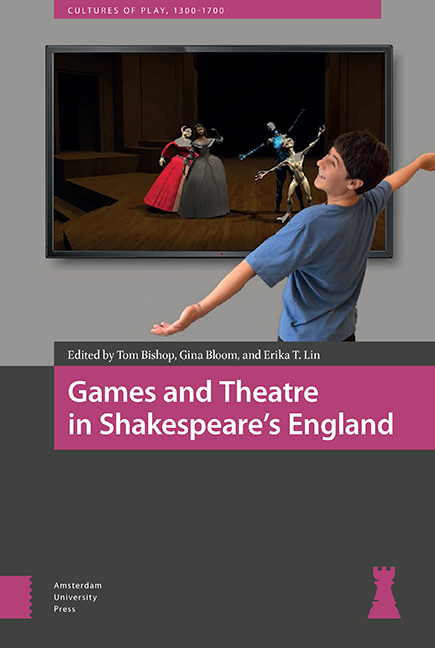Epilogue: Field of Play: Gamifying Early Modern Theatre and Performance Studies
Published online by Cambridge University Press: 21 October 2021
Summary
Abstract
If the study of early modern theatre and performance takes as its object the study of “play,” this epilogue asks: What are the rules of the game? How does conceptualizing early modern theatre and performance as gamelike shift the field in which we work and the turf upon which we play? Where are the parameters that delimit the field drawn, and how do they determine what is considered to be in or out of bounds? Surveying how these essays variously work with and play upon disciplinary rules and boundaries, I suggest how other models and modalities of early modern play might open the field to new modes of inquiry.
Keywords: archive; discipline; doll house; gamif ication; gender; Wunderkammern
Les jeux sont faits
The cry of the croupier in roulette as the wheel is set in motion announces, like an epilogue, that play is done: rien ne va plus, a point of no return has been reached as the bets are placed, the stakes set. Yet this end also marks a beginning, an opportunity to survey where the chips lie and anticipate the upshot of the game, a task to which this epilogue now turns.
The rules of the game
Let us begin with a pivotal question prompted by this prescient collection of essays: if the field of early modern theatre and performance takes as its object the study of “play,” what are the rules of the game? At stake in this question, and in the essays collected here, which variously model its implications, is not only the scope of what counts as “play” in the historical past (i.e. the resemblance of stageplays to other sports, games, entertainments, and pastimes), but the gamification of the field's archives and methods of study in the present, and the disciplinary future this gambit portends: how does conceptualizing early modern theatre and performance as gamelike shift the field in which we work and the turf upon which we play? Where are the disciplinary parameters that delimit the field drawn, and how do they determine what is considered to be in or out of bounds?
- Type
- Chapter
- Information
- Games and Theatre in Shakespeare's England , pp. 303 - 316Publisher: Amsterdam University PressPrint publication year: 2021



